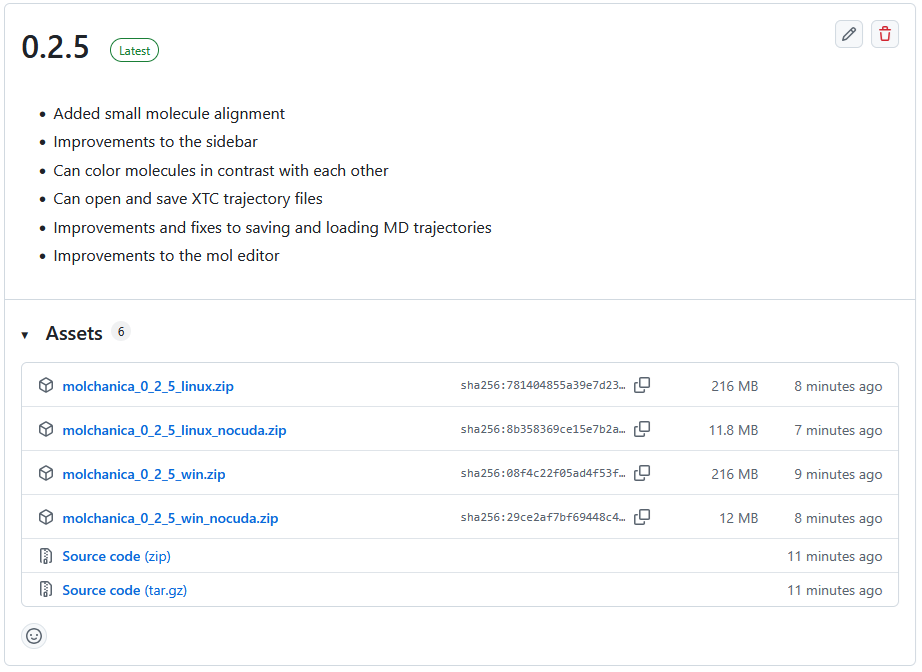Installation
Download, unzip, and run.
This program doesn't require an installation process; it's downloaded and launched as a standalone executable.
On Windows, extract the downloaded archive, and move the folder to a location of your choice. For example,
C:\Program Files\molchanica. Run by double-clicking molchanica.exe. You may pin to the task bar or start menu
as desired for your workflow. Windows will automatically find the application when searching using the Windows key.
The files in the archive vary slightly by operating system. For example, the Linux version includes a shell script for setup on the Gnome GUI. The versions with GPU support also include a CUDA library file. The Linux version includes a standalone icon file, while the Windows one embeds this in the application. The Readme is included in the downloads. Below is an example archive contents:
On Linux, how you launch it depends on your distribution. You may launch it directly from CLI, but some distros
don't allow double-clicking from the GUI. On Gnome distributions (Like Ubuntu and Debian), run setup_linux_desktop.sh, packaged with the executable. This creates a Desktop entry, which allows the program to be pinned to the side menu, or launched from search. Don't run this with sudo, or it won't be able to create the Desktop entry.
We provide two types of downloads: Ones marked _nocuda, and ones without. The ones not marked as _nocuda are much larger due to the inclusion of CuFFT (see below). If you have an Nvidia GPU, download the normal archive. If not, download the _nocuda one.
Gemmi bundling
This application optionally uses the Gemmi CLI program to
open some electron density formats like MTZ, and 2fo-2fc mmCIF files. Gemmi must be next to the application, or on the Path to support these file types.
We bundle directly with the application on Windows. (Keep it in the same folder as the executable).
On Linux, the installation script will load it from apt.
Other linux distributions
If you're running a Linux distribution that does not have a compatible API with Ubuntu and Debian, you can compile
from source. Compile from source by downloading and installing Rust, then running cargo build --release from a CLI
in the project directory. See notes in the compiling section below about setting up Amber parameter files,
and either installing the CUDA toolkit, or disabling CUDA.
CuFFT library
If using CUDA for long-range reciprical forces, we currently require the cuFFT library to be available. Unlike for
normal CUDA and 3D graphics, this requires more than an Nvidia graphics driver; it requires libcufft.so.12
(Linux), or cufft64_12.dll (Windows). We provide this library with the
application. It must be available either on the system PATH or LD_LIBRARY_PATH environment variables. On Windows,
it may also be placed in the same directory as the Molchanica executable. The Linux setup script places it in the appropriate
location.

